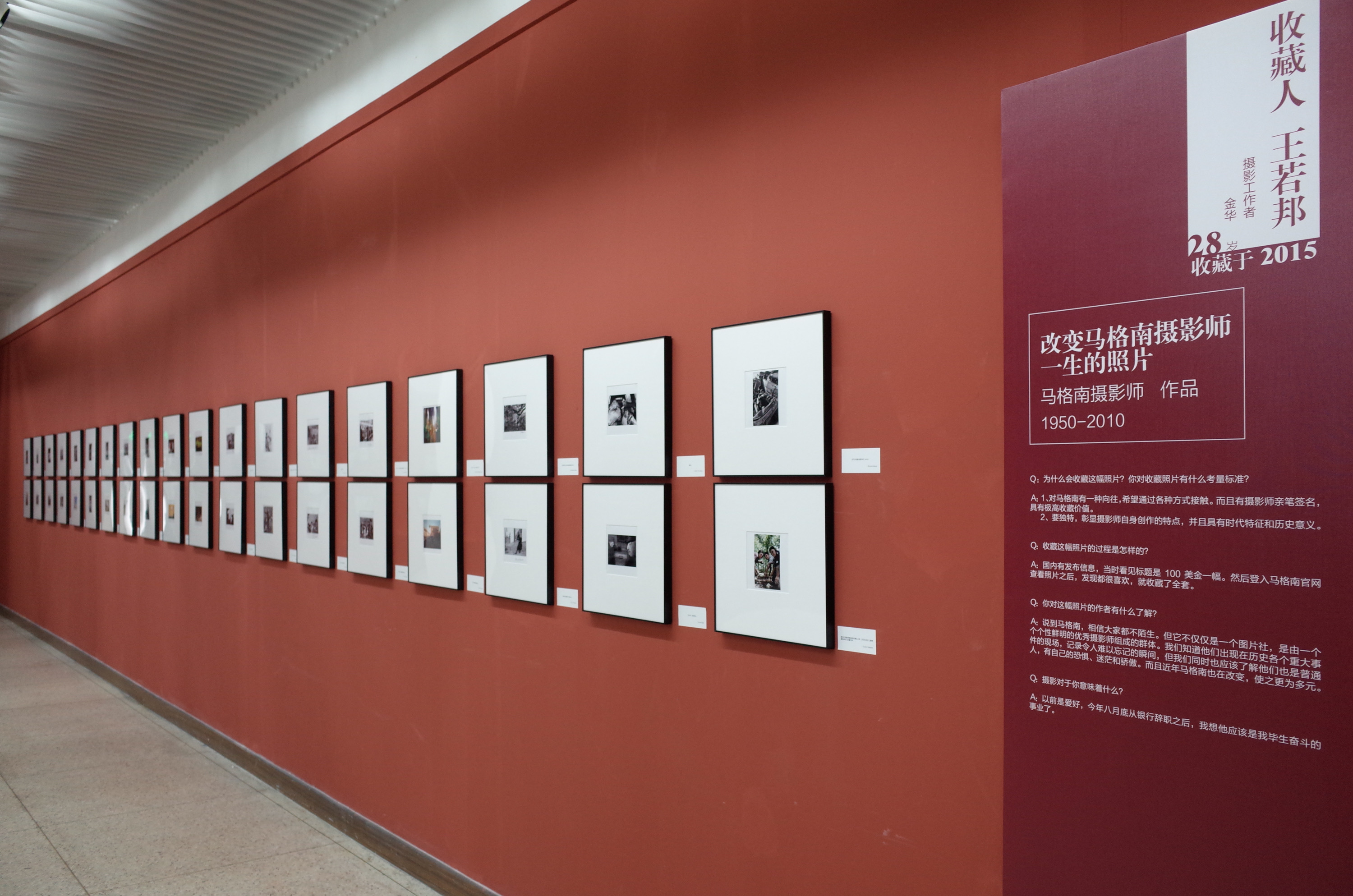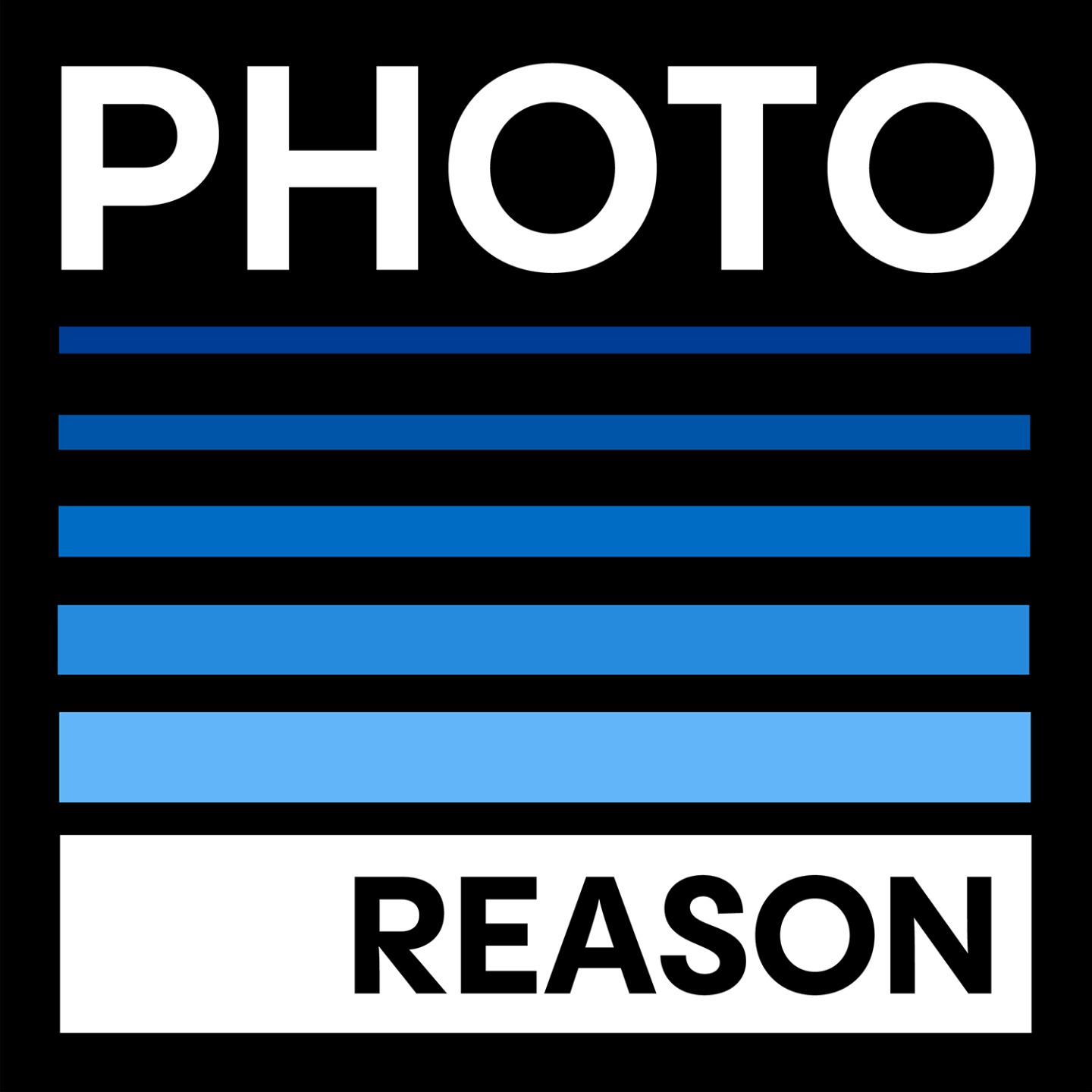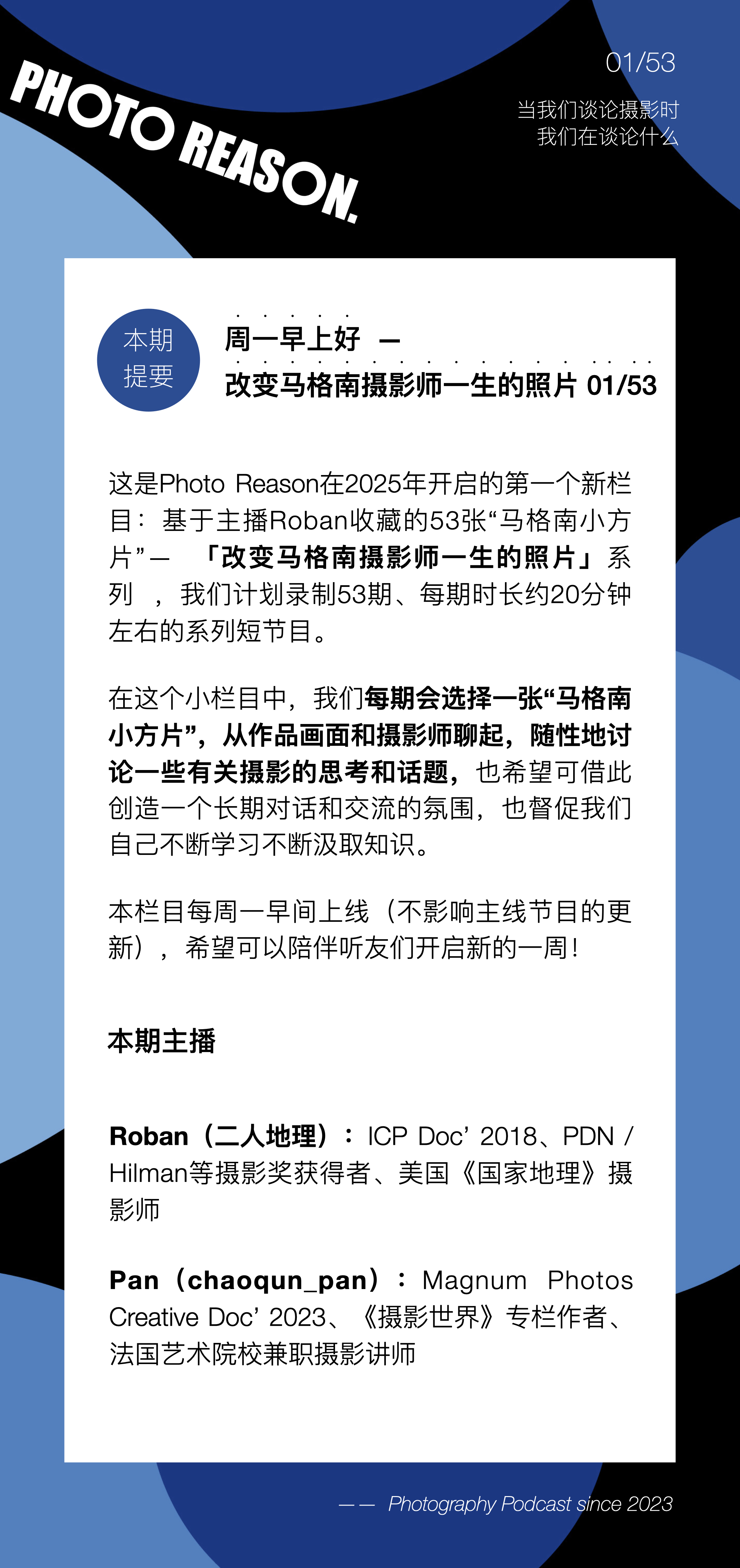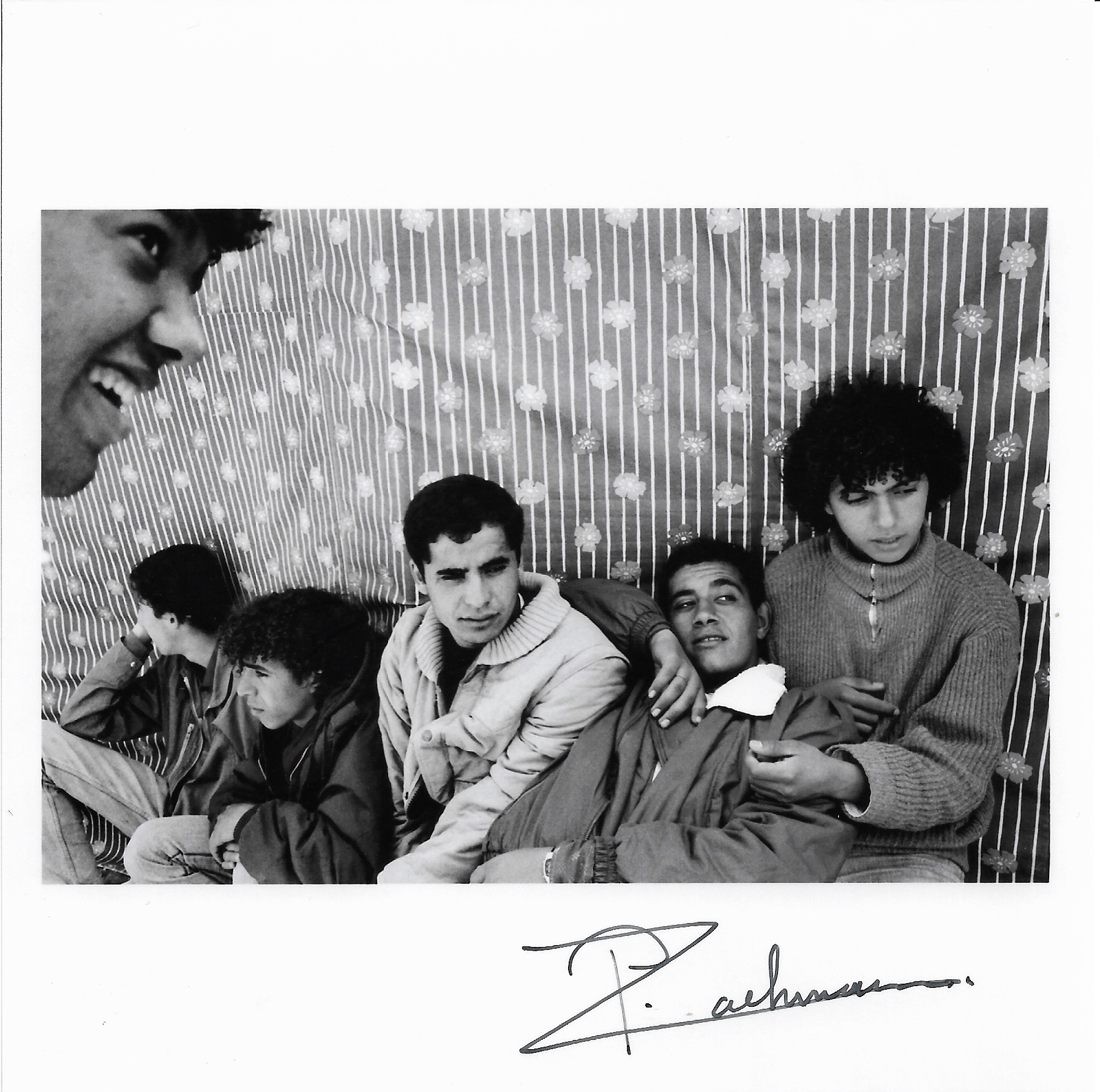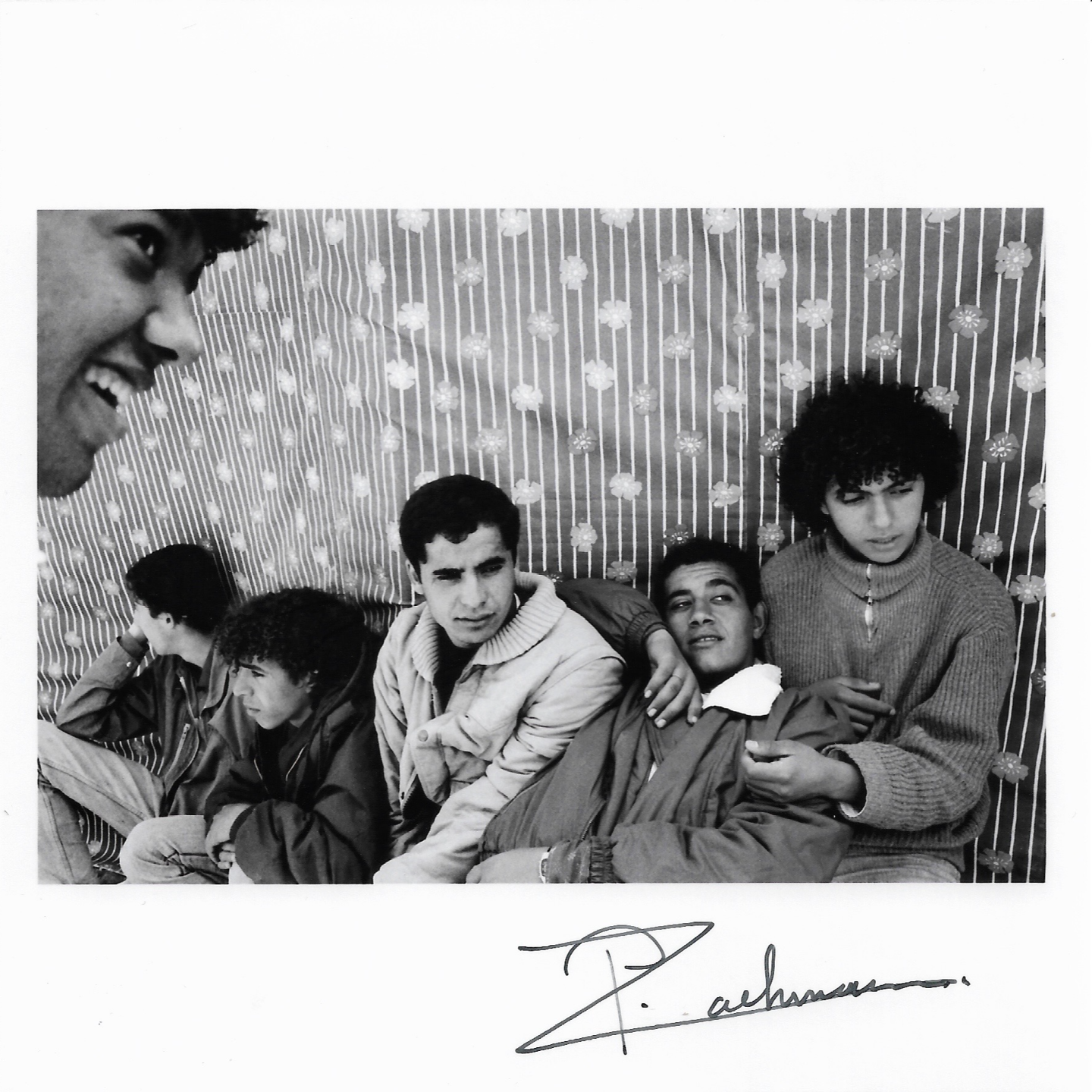
Deep Dive
What was the significance of Patrick Zachmann's 1984 project in Marseille for his photography career?
The 1984 project in Marseille, where Patrick Zachmann taught photography to dropout children from immigrant backgrounds, marked a turning point in his career. It shifted his approach from merely taking photos to giving back to the community. By acting as a teacher rather than a transient photographer, he gained access to closed and sometimes dangerous communities, fundamentally changing his perspective on photography as both a medium of expression and a tool for connection.
Why did Patrick Zachmann emphasize the importance of not being confined by a single photographic style?
Patrick Zachmann believed that being confined by a single style limits a photographer's ability to adapt and express diverse narratives. He practiced this by constantly evolving his techniques and approaches across different projects, such as his work in Naples and Marseille. This philosophy allowed him to explore various communities and stories without being restricted by a fixed visual identity, making his work more dynamic and responsive to the subjects he photographed.
How did Patrick Zachmann's approach to photography influence his students and peers?
Patrick Zachmann's approach to photography, which emphasized community engagement and the avoidance of a fixed style, deeply influenced his students and peers. He encouraged them to use photography as a medium for personal expression and to engage deeply with their subjects. His method of revisiting communities and maintaining long-term relationships with them also inspired others to consider the ethical dimensions of photography and the importance of giving back to the communities they document.
What role does technology play in Patrick Zachmann's photography according to his teachings?
Patrick Zachmann stressed the importance of technical skills in photography, a somewhat rare emphasis among contemporary photographers who often focus more on conceptual aspects. He believed that mastering technical elements like composition and exposure is crucial for effectively communicating through images. This approach ensures that the technical quality of the photograph supports its narrative, making the story more compelling and accessible to the viewer.
What is the concept of 'personal diary' in Patrick Zachmann's photography?
Patrick Zachmann views his photography as a 'personal diary,' a visual record that fills gaps in his memory and captures his interactions with various communities. This concept reflects his deep engagement with the subjects he photographs, treating each project as a chapter in his life that documents not just the external realities but also his personal experiences and emotional responses to the environments and people he encounters.
- Patrick Zachmann's photograph chosen for its pivotal role in his career.
- The project involved teaching photography to at-risk youth in Marseille.
- Zachmann's shift from 'taking' to 'giving' in his photographic practice.
Shownotes Transcript
***本期「小方片」来自 -- Patrick Zachmann ******(帕特里克·扎克曼)***)
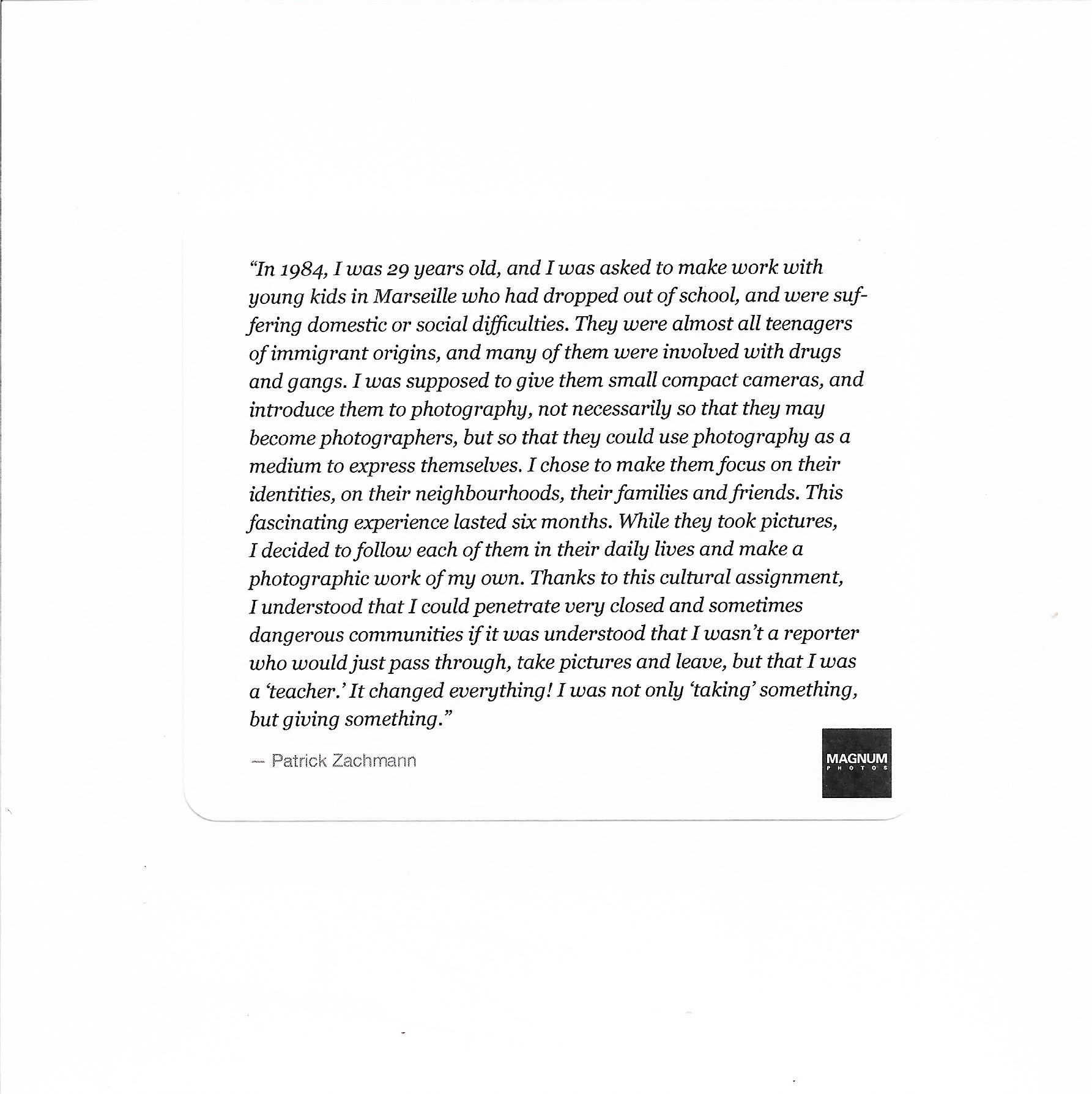
“这段令人着迷的经历持续了约六个月,在这段时间中,我选择让他们专注于探索自己的身份、他们所处的街区、他们的家庭以及朋友。而在他们拍照的过程中,我决定也跟随他们每一个人,记录他们的日常生活,并拍摄我自己的摄影作品。多亏了这项文化性的任务,我发现,只要让被拍摄者明白我并不是一个只是路过、拍几张照片就走的记者,而是一个“老师”,我就能够进入那些非常封闭、有时甚至危险的社区。这一切改变了我!在摄影中,我不只再是‘索取’什么,我也在给予一些东西。”
-- 翻译:Pan
- 主播 Roban 的收藏展现场(2017年)
